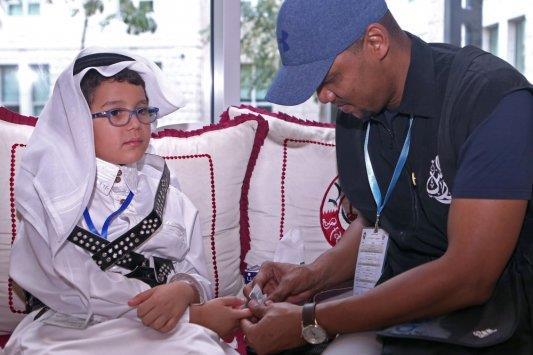
Qatar- Unique Sidra study to transform diabetes treatment of children
Doha: A unique study by the Sidra Medicine is expected to transform the way Qatar deals with diabetes, one of the most persistent health issues in the country. The study has already showed signs of success with some children now being treated with oral medications who were being treated with insulin injections earlier. Experts hope that more children will benefit from the findings of the study in coming months.
A team led by Professor Khalid Hussain at Sidra Medicine has been entering key data about patients aged up to 18 years into a nationwide diabetes database. This is the first comprehensive study undertaken to include every child with diabetes mellitus in a country and study the underlying epidemiology, genetic and molecular mechanisms.
'This study will form the basis for in-depth analysis of childhood diabetes mellitus in Qatar and develop potentially new therapies, Dr Basma Haris, a Clinical Researcher of the project told The Peninsula.
As a Clinical Research Fellow, Dr Basma's duties involve screening and selection of candidates for the project. She liaise with all the physicians at the Endocrine Department at Sidra, to identify all children with different types of diabetes mellitus.
'I interview the families, explain about the research and recruit into our study if they consent. The biggest challenge for me has been keeping meticulous records of clinical history and biochemical study results and categorising them into different types of diabetes as mechanism of disease and treatment varies according to type, she said.
'I am also responsible for extraction of samples in the lab and storing them. I am involved in preparation of samples for genome sequencing, metabolomics etc. and later working with our team of bio-informaticians for genetic analysis and help find the mechanism of the disease for patients, she added.
The study hopes to determine the overall rates of diabetes in Qatar, and to establish the breakdown between types 1 and 2. With type 1, generally diagnosed during childhood, the body destroys beta cells which create insulin.
Type 2 diabetes occurs primarily due to resistance to insulin produced by the body. This second form of the disease correlates highly with obesity and can, over time, lead to blindness, kidney damage, and heart disease or stroke.
Researchers at Weill Cornell Medicine predict type 2 diabetes in Qatar will jump from around 17 percent of the population now to around 24 percent by 2050.

Legal Disclaimer:
MENAFN provides the
information “as is” without warranty of any kind. We do not accept
any responsibility or liability for the accuracy, content, images,
videos, licenses, completeness, legality, or reliability of the information
contained in this article. If you have any complaints or copyright
issues related to this article, kindly contact the provider above.


















Comments
No comment